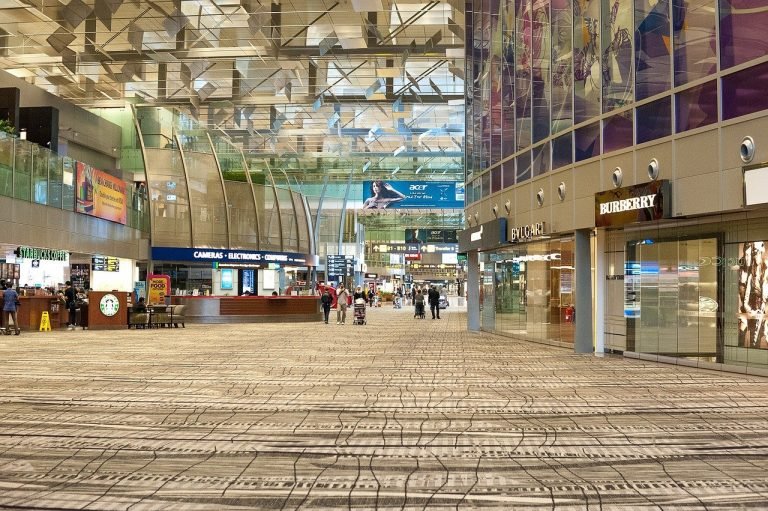The COVID-19 pandemic severely impacted economies worldwide, including Indonesia’s. Today, as the nation recovers, tourism has become a key driver of Indonesia’s economic revitalization. In 2023 alone, Indonesia welcomed 11.68 million international tourists, surpassing the initial target of 6–8.5 million arrivals.
Although this number hasn’t reached the pre-pandemic peak of 2019, international tourism has significantly boosted Indonesia’s revenue, generating USD14 billion (approximately IDR 218 trillion) in tourism foreign exchange earnings, doubling the previous year’s projection of USD7.08-9.99 billion, as reported by Indonesia.go.id.
Tourism Targets in the Prabowo-Gibran Era
Under the administration of Prabowo Subianto and Gibran Rakabuming Raka, Indonesia’s Ministry of National Development Planning (Bappenas) has set a target to increase tourism’s contribution to Indonesia’s Gross Domestic Product (GDP) to 4.6% by 2025, aiming for USD22.1 billion in tourism revenue.
According to AntaraNews (4/23), Executive Director at the Center of Economic and Law Studies (Celios), Bhima Yudhistira considers this target realistic. In fact, tourism’s contribution to GDP can reach 5% to 5.3% under favorable conditions.
The conditions that must be addressed are:
- Enhanced Infrastructure and Connectivity: Adequate infrastructure and improved flight connectivity between key tourism destinations are essential. Given the weakened Rupiah, Indonesia remains attractive to travelers from Europe, Australia, and the U.S., so an optimized tourism infrastructure could help capture this growing interest.
- Supportive Fiscal Policies and Tax Incentives: The government needs to provide favorable tax incentives and avoid increasing taxes on entertainment and tourism to promote sectoral growth without additional tax burdens.
- Skilled Human Resources Development: Investing in tourism workforce training and increasing vocational school instructors from the tourism industry will boost Indonesia’s service quality and competitive advantage.
- Strategic Partnerships with Foreign Travel Agencies: To attract more international tourists, intensified partnerships with overseas travel agencies and airlines are essential for promoting Indonesia’s tourism globally.
The Challenge of Achieving Target
Taufan Rahmadi, a tourism expert from Indonesia Tourism Strategist, emphasizes that achieving this target will be a challenge for the Prabowo-Gibran leadership.
“Returning the contribution of Tourism GDP to national GDP to the same level as before the pandemic, namely above 5%.” Quoting Bisnis (10/28).
This requires a focused strategy on building tourism infrastructure, promoting destinations, and enhancing service quality. A strong public-private partnership will also be essential to realizing these objectives, and Rahmadi is optimistic about tourism’s potential to contribute up to 5% of national GDP in the coming years.
Economists’ Optimism on Tourism Sector
Quoting ANTARA, (10/28), similarly, Director at the Center of Economic and Law Studies (Celios), Nailul Huda believes that tourism’s GDP contribution could exceed the 4.6% target, potentially reaching 5% with a USD22.1 billion tourism foreign exchange target.
“Tourism is broad, encompassing transportation, accommodation, and attractions. “If everything is combined, perhaps the contribution could be more than 5% or around IDR 1,044 trillion (GDP 2023: IDR 20,892 trillion),” said Huda.
He also stresses the importance of positive community impact, sustainable tourism, and supporting small and medium enterprises (SMEs).
Regulatory improvements are also critical, especially concerning foreign online travel agents (OTAs) that charge value-added tax (VAT) and commission fees without contributing to local tax revenue. Clearer regulations on tax collection for OTAs could help balance market conditions and support local businesses, which often bear tax burdens that foreign entities evade.
According to ANTARA, Chusmeru, a tourism analyst from Universitas Jenderal Soedirman, notes that the lack of compliance among some OTAs creates market inequity, as they often operate without a legal entity or tax obligations. He recommends that this issue become a priority in the first 100 days of office for Tourism Minister Widiyanti Putri, helping to protect local entrepreneurs and foster a fair business climate.
He added, quality and regenerative tourism will be critical. Indonesia must focus not only on increasing visitor numbers but also on attracting tourists who positively impact local economies. Sustainable tourism policies that support the local workforce and promote cultural heritage are essential for long-term growth.
As Chusmeru summarizes, “Tourism must be part of civilization that must contribute to a prosperous society.”

















